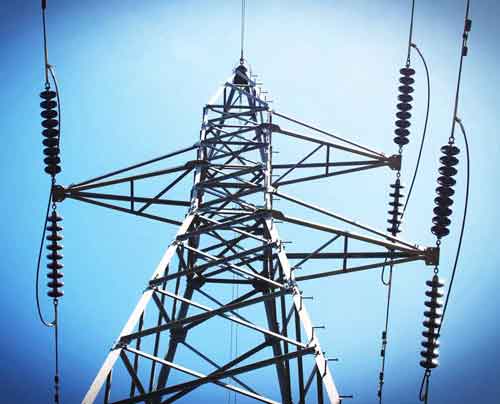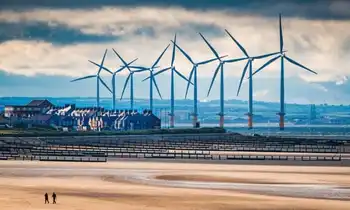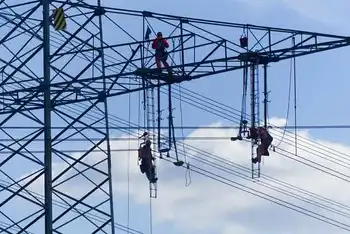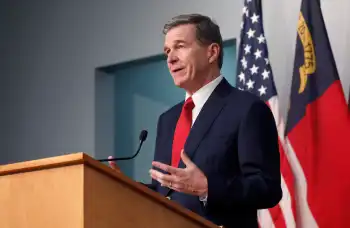Canada watching U.S. emission efforts
The U.S. Environment Protection Agency said over the holidays that it will propose emission performance standards for new and existing fossil-fuel facilities this year, despite opposition from Republicans and some Democrats in Congress.
The proposed regulations — to take effect at the end of 2012 — would be in addition to EPA rules that came into effect on January 2 that require all new plants or major expansions to get permits for emitting carbon dioxide and other greenhouse gases GHGs.
That permitting requirement has been in the works for several months. Federal Environment Minister John Baird has said Ottawa will not adopt similar measures, but will broadly match the U.S. regulatory approach.
Despite the movement south of the border, the Harper government has given no indication how it intends to regulate Canadian industry, including oil companies who could face significant additional costs for the rapidly expanding oil-sands sector if Ottawa follows the U.S. lead.
"The EPA is now moving ahead even more aggressively to regulate industrial greenhouse-gas emissions," said Matthew Bramley, an analyst with the Calgary-based environmental group, Pembina Institute.
"So it is really time for the government of Canada to demonstrate whether its stated policy of harmonizing with the U.S. was purely rhetorical in order to delay, or whether it was meant seriously."
The opposition has sought to keep pressure on the Harper government, recently demanding that Ottawa act unilaterally rather than wait for the Americans. Opposition parties joined together in the Commons to pass climate legislation that was defeated in the Conservative-controlled Senate in November.
Liberal environment critic Gerard Kennedy said Prime Minister Stephen Harper appears to have no desire to adopt climate regulations, given that his government has not kept up with U.S. efforts despite the pledge to harmonize.
"They've been caught behind a carbon smokescreen," Mr. Kennedy said in an interview.
"This is going to be an embarrassing time for them because this has been their main excuse for not using the regulatory power they had — and now the Americans are moving. I think we're really back to a do-nothing kind of approach that has characterized this government."
Mr. Kennedy said Mr. Harper may choose to "lie in the weeds" and wait to see whether Congressional opposition or industry lawsuits can derail the EPA's plans.
Bill Rodgers, a spokesman for Mr. Baird, reiterated that the government intends to harmonize with U.S. climate-change rules, but wouldn't comment on the EPA's recent announcement. The U.S. regulator said it will require existing power plants and refineries to invest in the best available technology to reduce emissions, but has not yet unveiled specific proposals.
Mr. Baird — who is also Government House Leader — returned to the post of environment minister in November when Jim Prentice resigned, and is expected to be replaced in a cabinet shuffle this month.
In April of 2007, the Harper government announced a plan to impose industry-specific GHG regulations, but later changed course and proposed a national cap-and-trade system. When it become clear the U.S. would not pass its own cap-and-trade legislation, the Harper government said it would match the regulatory approach being planned by the Obama administration.
Ottawa also plans to introduce draft regulations in April that would force power companies to eventually replace traditional coal-fired power plants with lower-emission ones, including natural gas or carbon-capture-and-storage technology. But those rules would only come into force in 2015, and would not require existing power plants to reduce emissions.
Albert, Saskatchewan and Nova Scotia rely heavily on coal-fired power for electricity, and would be most impacted by higher power costs if the federal government forced utilities to reduce emissions.
The oil industry has warned that EPA rules — and any effort to match them in Canada — would drive up costs for North American refineries, meaning higher prices for motorists, airlines and the trucking industry.
Oil-sands producers would be particularly vulnerable because they require emission-intensive processing to transform the crude bitumen into gasoline and diesel. Currently, producers either upgrade the bitumen into synthetic crude oil in Alberta and then refine it, or export the raw product for processing in U.S. refineries.
Industry spokesman Peter Boag said the Harper government is planning to harmonize the "outcomes" of U.S. emission regulations — meaning roughly equivalent stringency — rather than precisely copying EPA rules. He said the EPA's regulatory approach gives industry little flexibility in meeting emission-reduction goals.
"I don't think it allows for the kind of creative and innovative solutions that the private sector can address," said Mr. Boag, president of the Canadian Petroleum Products Institute, which represents the refining side of the oil industry.
Related News

Maritime Link sends first electricity between Newfoundland, Nova Scotia
HALIFAX - For the first time, electricity has been sent between Newfoundland and Nova Scotia through the new Maritime Link.
The 500-megawatt transmission line — which connects Newfoundland to the North American energy grid for the first time — was tested Friday.
"This changes not only the energy options for Newfoundland and Labrador but also for Nova Scotia and Atlantic Canada," said Rick Janega, the CEO of Emera Newfoundland and Labrador, which owns the link.
"It's an historic event in our eyes, one that transforms the electricity system in our region forever."
'On time and on budget'
It will eventually carry power from the Muskrat Falls hydro…





